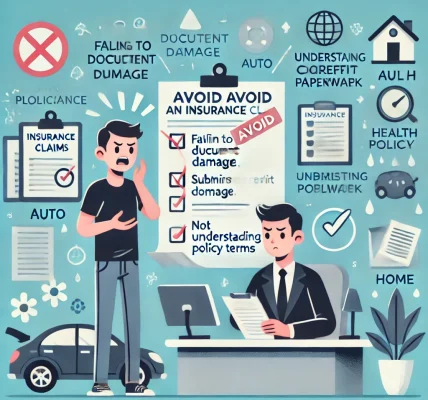Introduction
The insurance industry is undergoing a massive transformation, thanks to advancements in artificial intelligence (AI) and technology. From automating claim processing to fraud detection, these innovations are streamlining operations, improving accuracy, and enhancing customer experiences. But how exactly is AI reshaping the insurance claims process, and what does this mean for policyholders? Let’s explore the key ways AI and technology are revolutionizing the future of insurance claims.
1. Automated Claims Processing
One of the most significant impacts of AI in insurance is the automation of claim processing. Traditionally, claim approval could take days or even weeks, requiring manual paperwork and human intervention. However, AI-powered tools are now making this process faster and more efficient.
How AI is Automating Claims:
- AI Chatbots & Virtual Assistants: Many insurers now use AI-driven chatbots to assist policyholders in filing claims, answering queries, and guiding them through the process.
- Image Recognition Technology: AI algorithms analyze photos of damages (e.g., car accidents, property damage) to assess losses quickly and provide immediate estimates.
- Real-Time Processing: With machine learning models, AI can verify documents, assess risks, and approve claims within minutes, reducing wait times significantly.
✅ Benefit for Policyholders: Faster claim approvals, reduced paperwork, and enhanced customer support.
2. Fraud Detection & Risk Assessment
Insurance fraud is a major concern, costing billions of dollars annually. AI and big data analytics are playing a crucial role in detecting fraudulent claims and minimizing risks.
AI’s Role in Fraud Prevention:
- Behavioral Analysis: AI monitors claim patterns and flags suspicious activities, such as exaggerated losses or repeated claims from the same individuals.
- Blockchain Integration: Some insurers use blockchain technology to create tamper-proof records, ensuring the authenticity of claims and preventing document manipulation.
- Predictive Analytics: By analyzing historical data, AI can identify high-risk policyholders and reduce potential fraudulent payouts.
✅ Benefit for Policyholders: More secure and trustworthy claim processes, reducing the risk of premium hikes due to fraud.
3. Personalized Policy Adjustments
AI is also revolutionizing how insurance policies are tailored to individual needs. Insurers are now leveraging machine learning to analyze customer data and offer customized policies.
AI-Driven Policy Enhancements:
- Telematics & IoT Devices: Auto insurers use AI-powered telematics (e.g., tracking driving habits) to adjust premiums based on safe driving behaviors.
- Health & Wearable Tech: Life and health insurers analyze data from wearable devices (e.g., Fitbit, Apple Watch) to offer personalized discounts and wellness incentives.
- Dynamic Pricing Models: AI continuously evaluates risk factors and adjusts policy pricing in real-time, ensuring fair premium rates.
✅ Benefit for Policyholders: More personalized coverage, fairer pricing, and rewards for safe behaviors.
4. AI-Enhanced Customer Experience
The use of AI is enhancing customer interactions, making the insurance claims process more user-friendly and transparent.
How AI Improves Customer Support:
- 24/7 AI Chatbots: Policyholders can get instant answers to their queries without waiting for human assistance.
- Speech Recognition & NLP: AI-powered customer service tools can process verbal claims, reducing the need for complex documentation.
- Sentiment Analysis: AI analyzes customer emotions from chats, emails, or phone calls to provide personalized assistance and improve service quality.
✅ Benefit for Policyholders: Faster, more efficient customer service and simplified claim submissions.
5. Future Outlook: What’s Next for AI in Insurance Claims?
The future of AI in insurance is promising, with even more advanced capabilities on the horizon:
- AI-Driven Drones: Used for assessing large-scale property damage after disasters.
- Robotic Process Automation (RPA): Further streamlining back-end claims processing.
- Predictive Claim Settlements: AI will predict claim outcomes and proactively offer settlements, reducing disputes.
✅ Final Takeaway: AI and technology are transforming insurance claims, making them faster, fairer, and more secure. As these innovations continue to evolve, policyholders can expect a more seamless and hassle-free claims experience.




